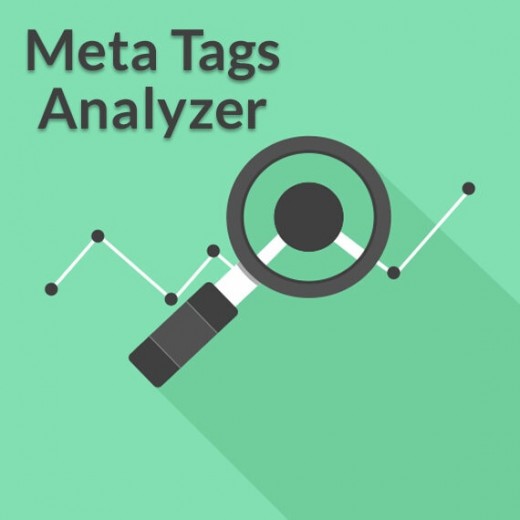Introduction
Meta tags are an essential aspect of optimizing your website for search engines. They provide information about the content of your web pages, helping search engines understand what your pages are about. To maintain good SEO practices, it's crucial to review and update your meta tags periodically. In this article, we will discuss the frequency with which you should review and update your meta tags analyzer.

What are Meta Tags?
Meta tags are snippets of code in the HTML of a webpage that provide information about the content. They include the title, description, and keywords related to the page's content. Search engines use this information to rank and display your web pages in search results.
The Importance of Meta Tags
Effective meta tags can significantly impact your website's search engine ranking. They improve the visibility of your web pages, drive organic traffic, and attract potential visitors. Meta tags are a vital component of on-page SEO.
How Often Should You Review and Update Your Meta Tags?
Regular Monitoring
It's recommended to monitor your meta tags regularly, especially for frequently changing content. If your website features dynamic content, such as a news portal or blog, you should consider reviewing your meta tags at least every month. This ensures that your meta tags remain relevant to the current content.
Seasonal Updates
For websites with seasonal content, such as e-commerce platforms or holiday-specific pages, review and update your meta tags before each relevant season. This includes holidays, special occasions, or annual events. Updated meta tags can improve your website's visibility during specific periods.
Major Website Changes
Whenever you make significant changes to your website, such as redesigns, structural modifications, or content overhauls, it's crucial to review and update your meta tags. Major changes can affect the relevance and accuracy of your existing meta tags.
Tips for Effective Meta Tag Review and Update
Keyword Relevance
Ensure that your meta tags contain keywords relevant to the content. Keywords should accurately reflect the information on the page.
Length and Structure
Pay attention to the length and structure of your meta tags. Meta titles should be concise and under 60 characters, while meta descriptions should be informative but not too lengthy.
Duplicate Tags
Avoid duplicate meta tags across your website. Each page should have unique meta tags to prevent confusion for search engines.
Mobile Optimization
Optimize your meta tags for mobile users. Mobile optimization is critical, as a significant portion of internet users access websites through mobile devices.
Tools for Meta Tag Analysis
Various online tools and plugins can help you meta tags analyzer analyze your meta tags. Tools like Google Search Console and Yoast SEO for WordPress can provide valuable insights into the performance of your meta tags.
The Impact of Updated Meta Tags
Updating your meta tags can lead to improved search engine rankings, increased click-through rates, and higher organic traffic. It helps search engines recognize the relevance and freshness of your content.
The Relation Between Meta Tags and SEO
Meta tags are closely connected to SEO. They are an integral part of on-page SEO and play a pivotal role in how search engines index and display your website in search results.
Conclusion
In conclusion, regularly reviewing and updating your meta tags is essential for maintaining a strong online presence. It ensures that your website's information is accurate, relevant, and up-to-date, which, in turn, positively impacts your SEO efforts.
FAQs
How often should I review and update my meta tags?
- Review your meta tags regularly, especially for dynamic content.
- Update them before each relevant season for seasonal content.
- After major website changes, such as redesigns or content overhauls.
What are the consequences of neglecting meta tag updates?
- Your content may become outdated and less relevant to search engines.
- Your website may lose visibility in search results.
What is the optimal length for a meta title?
- Keep your meta title under 60 characters for better search engine visibility.
Can I use the same meta tags for multiple pages on my website?
- It's best to have unique meta tags for each page to avoid confusion for search engines.
How can I analyze the performance of my meta tags?
- You can use tools like Google Search Console and Yoast SEO for WordPress to analyze your meta tags' performance.







